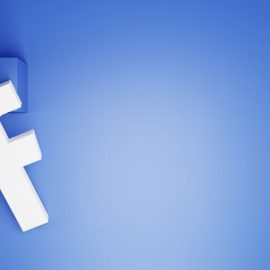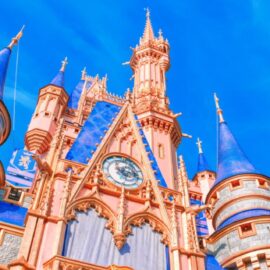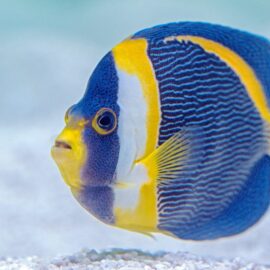

This article is an excerpt from the Shortform book guide to "Elon Musk" by Ashlee Vance. Shortform has the world's best summaries and analyses of books you should be reading.
Like this article? Sign up for a free trial here.
What kind of abuse did Elon Musk experience in his childhood? How did he first make money? Why did he move to North America?
The insightful yet combative nature that would come to define Elon Musk later in life had its roots in his upbringing. His childhood was shaped by early trauma, compounded by the difficulties caused by his neurodivergence.
Read more to learn about Elon Musk’s early life, from South Africa to North America.
Elon Musk’s Early Life
Isaacson writes that Elon Musk’s early life involved abuse both at home and at school. He was able to escape only through his love of science fiction and computing, the latter of which would enable him to start a new life on the other side of the world.
Musk was born in Pretoria, South Africa, on June 28, 1971. Because he was unusually smart as a child, he started school a year early, perhaps to his disadvantage. Musk had trouble making friends, in part due to his difficulty interpreting emotions and personal cues—a trait which Musk would later identify as a symptom of Asperger’s syndrome. Musk was regularly beaten at school. And, at home, both he and his mother endured Musk’s father’s relentless verbal assaults. Musk’s parents divorced when he was eight years old. Because his mother worked long hours to support them, he and his siblings had to fend for themselves.
(Shortform note: Asperger’s syndrome is a form of autism in which a person has difficulty mastering interpersonal skills, but language skills and intellectual development are otherwise unimpaired. Asperger’s is diagnosed mainly by observation—people living with Asperger’s might exhibit traits such as obsessive behaviors, hypersensitivity, and difficulty understanding other people’s perspectives. Children with Asperger’s and other autism spectrum disorders are especially vulnerable to bullying and abuse, such as what Musk experienced growing up.)
Isaacson writes that, at the age of 10, Musk decided to live with his father, despite the nonstop verbal abuse, out of guilt that his father was living alone. Musk endured this period of his life by retreating into science fiction books and comics, in which he met characters out to save the world and started to dream about going to the stars. At this time, Musk also discovered video games and computers. He taught himself to write programs so well that, by the age of 13, he was designing his own video games and selling them to computer magazines.
(Shortform note: As an innovator inspired by science fiction, Musk is in good company. The father of rocketry himself, Robert Goddard, became fascinated by the possibility of flight beyond the Earth after reading H.G. Wells’s The War of the Worlds. Simon Lake, a pioneer in the design of submarines, incorporated real-world elements that were first described by Jules Verne in Twenty Thousand Leagues Under the Sea. More recently, Microsoft founder Bill Gates has credited the novels of the author Robert A. Heinlein for broadening his ability to envision the future.)
As Musk neared his high school graduation, he knew he had to leave his abusive father behind. Unfortunately, Isaacson suggests that Musk had developed some of his father’s traits—such as swinging rapidly toward dark moods with little warning and expressing his anger in vicious verbal tirades. Still, he wanted to spare himself and the rest of his family from his father’s influence. He moved to Canada with $4,000, where he worked on farms and lumber yards as he paved the way for his mother and siblings to join him. Once they were all reunited in Toronto, Musk took a job as a Microsoft intern and began his college career.
(Shortform note: Many people who experience childhood abuse find themselves taking on traits of their abusers. In psychology, this is known as repetition compulsion, in which someone tries to control their past trauma by replaying and mastering it in the present. Usually, this process is completely unconscious and can only be addressed through therapy and self-work. In Musk’s case, Isaacson stops short of making a psychological evaluation, but he points out the telling similarities between Musk’s behavior and his father’s.)
Exercise: Consider Your Opinions About Elon Musk
Elon Musk is a divisive figure, seen by some as a technological visionary and others as a wanton disruptor. Isaacson paints a complicated portrait that suggests both propositions might be true. Think about how your impressions of Musk might have either changed or been reinforced by the material presented here.
- Isaacson describes how Musk’s traumatic childhood shaped how he interacts with the world as well as his mission in life. How does Musk’s ambition to positively impact the future make you feel about his behavior?
- To what extent can you empathize with Musk?

———End of Preview———
Like what you just read? Read the rest of the world's best book summary and analysis of Ashlee Vance's "Elon Musk" at Shortform.
Here's what you'll find in our full Elon Musk summary:
- A biography of Elon Musk by renowned biographer Walter Isaacson
- Musk's traumatic South African childhood up until his Twitter takeover
- How Musk's Asperger's syndrome affected his childhood and relationships






